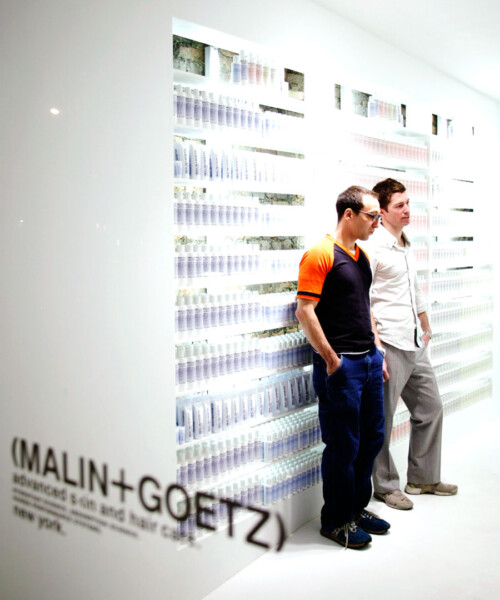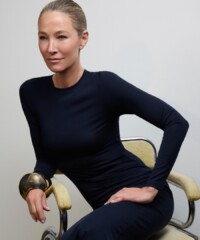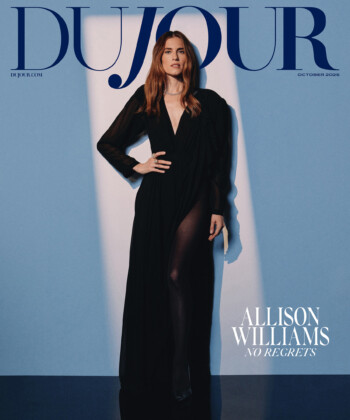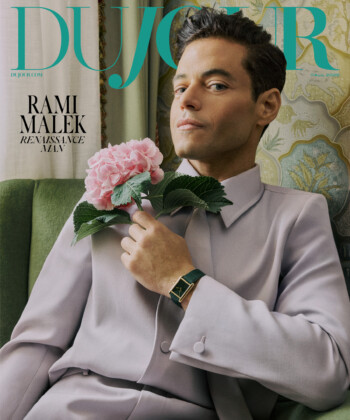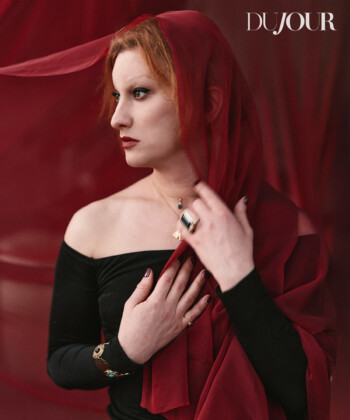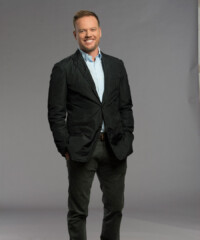If you recognize the names Matthew Malin and Andrew Goetz, it’s probably because their san-serif last names are plastered on your favorite moisturizer, body wash or candle. The grooming gurus founded their eponymous brand (Malin + Goetz) eleven years ago, and since then, it’s quickly transformed into an international skincare empire.

(Malin + Goetz) skincare products
Being partners in business and in life has its advantages, but for Malin and Goetz, striking the perfect balance is a constant work in progress. Here, they share their story and offer advice on running a company as a couple.
How did the idea for the brand initially come together?
Andrew Goetz: The business started in March of 2004, but I would say that the idea popped up three years before that. Matthew had been in charge of global distribution for Khiel’s and when it was sold to L’Oreal, he thought, Wow this is a great opportunity for someone to do something family-owned but also modern and contemporary.
Matthew Malin: Andrew approached me and said we should pool together our respective resources and start a business. It was a scary proposition for me, so I said no. I took a job with Prada and worked there for two years. Eventually Andrew said, “Now’s the time.” I was 35 years old, and we had known each other for 10 years at that point. I thought, Maybe it’s now or never. So we sort of jumped off the cliff and did it.
Why were you hesitant about it?
MM: There were two reasons. Professionally, I was scared. And personally, I really valued our relationship and I wasn’t certain that it would be easy for the two of us to work together. Andrew’s response was always, “Who could you trust more than me?” And that’s true, but it still puts a level of stress on the relationship that you just don’t have if you’re not working together.
AG: My biggest fear was just that we would create problems in an otherwise very healthy relationship that weren’t necessary.
What initially surprised you about working together once you launched the brand?
AG: Everyone’s qualities and personalities became more exaggerated. The level of intensity for me was surprising.
MM: I think the dynamic changes quite dramatically. We had a very equal partnership, and all of a sudden one of us is having to assume a much more authoritarian role within the business, while still being considerate and respectful to someone that you live with and have known for 10 years.
Be honest: Do you guys ever get sick of each other?
AG: It’s incredibly important that you have time to yourself. I wake up early and have a ritual. I love to read the newspaper and drink coffee. And then I go to the gym for an hour before heading to the office. I find that very therapeutic.
MM: What Andrew needs is quite different from my personal time. I personally would rather work a little bit every day and just find moments or hours during the day that I can have to myself as I need it. Sometimes I’ll take a Wednesday off or leave early one afternoon.
Do you have different styles of working?
MM: And I’m happy to answer emails on a Saturday or Sunday. Andrew will work until 11 p.m. every night Monday through Friday so that he doesn’t have to do anything on Saturday or Sunday. I can’t break away the same way. So we learned to work around those things with each other. We figured it out, but that’s a difficult piece for us.

Matthew Malin and Andrew Goetz
When you’re spending time together outside of the office, is it impossible not to talk about work?
AG: In the beginning it’s very advantageous to be talking about it all the time. But as the business matures, and when there’s a staff and an infrastructure, we don’t have to sit there and regurgitate every single problem that’s arisen.
MM: For the first five years we worked 24/7. You never really had enough down time to think about whether you were talking about work. I think it took time for us to really understand how to not work.
AG: I find it completely unhealthy to talk about it now unless it’s really urgent. Being a global company is really great, but wherever the sun is shining, there’s someone sending you a damn email! I find that you have to just draw the line and be done with it.
What advice would you give to partners in a similar position as you?
AG: Always be direct and polite. Couples are prone to more intensity, but I think all partnerships—whether it be a marriage, or business, or combination of the two—it’s about communication. Try to be fair, honest and earnest when it comes to solving problems both personally and professionally. We always try to dissuade office politics as much as possible, and we hope that we’re an example of that in our roles here. And also, be as certain as you possibly can about the business as well as your partnership. It’s all about taking a risk.
MM: You have to be honest with yourself and your partner. Not everyone can be objective about themselves.
What’s the best part about being in business together?
AG: One of the advantages is that your goals are very much aligned for our mutual success. Yes, other partners want your business to be a success as well, but they also might be looking to get rid of the other one. It could be very Machiavellian in that way.
MM: The commitment to starting a business is extraordinarily difficult. I think the benefits and the rewards are richer and greater in some ways, but you have to be willing to take the hits along the way that might be personally difficult. I don’t think that’s for everybody. Honestly, I probably would do it again with Andrew, but I think a separation is healthy, too.
AG: I think that even among pure business partners you need time apart. It is by all means dynamic and complex.
MM: …And hopefully interesting and fun along the way. The beautiful thing is we get to create the culture of Malin + Goetz, and it can be in our image, and that’s a really wonderful place to be.


























